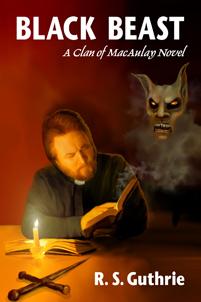Many may find the life of an indie author very tedious. Trying to break into the business is a long process of dedication and hard work. You have to absolutely love storytelling. Remember your senior year English term paper? It’s like that, but on steroids. It goes like this:
- Draft your novel. This can take anywhere from a few days to a few months to a few years.
- Sit on it for a while and start another novel, novella, or short story. This gets you away from the first story so you can return to it with a fresh set of eyes.
- Return to it. Read it. Revise it. It’s not reading for pleasure or to pat yourself on the back. It’s a slow, laborious task of finding flaws in grammar, spelling, and the fact that maybe one of your characters put a rifle in the trunk of his car on page 57 but it’s never mentioned again. So, you fix those problems to help the story ring true.
- Revise it again because you know that there’s always something to improve upon.
- Again! There’s a scene or two that still doesn’t ring true, and you know it. But it’s getting harder to find the mistakes because you’re now so familiar with the words that you’re not sure you’re even reading them anymore.
- Send it to a few trusted friends for their feedback. These have to be people that love you enough to tell you when you’re wrong. Even then, they are your friends, so you have to take what they say with a grain of salt.
- Consider what you were told to fix, understanding that some of the feedback may go against your vision but is also coming from a subset of your market, so maybe there’s more validity in the criticism than you’d like. Revise again.
- Send the manuscript to an editor to find all the mistakes you and your loved ones didn’t notice. There will be some, I promise.
- Search for a publisher. Or you may self-publish like many new authors these days. Whatever avenue you’re comfortable with that gets your words to prospective fans.
- Wait, wait, wait for sales so that you can finally quit your day job and only write, write, write.
I’m being a little over-disparaging here on purpose. I’m not complaining or looking for sympathy. Nor am I trying to speak for other authors. But I do want to illustrate what goes into writing a novel so that I can talk about a specific author and the sacrifices he’s made in the midst of all that hard work.
 If you purchase an R.S. Guthrie book, he’ll donate at least 50% to the tuition of a young man with autism and Down Syndrome. Special needs schools like The Joshua School are expensive, and Rob Guthrie has found a way to help his friends and their son. If you purchase from his website, he’ll also send you a signed copy of the book and the donation percentage increases! This is a man who loves storytelling. If he could, I believe that Rob would sit all day in his Colorado home and type, type, type, until he had a bookshelf full of stories to offer.
If you purchase an R.S. Guthrie book, he’ll donate at least 50% to the tuition of a young man with autism and Down Syndrome. Special needs schools like The Joshua School are expensive, and Rob Guthrie has found a way to help his friends and their son. If you purchase from his website, he’ll also send you a signed copy of the book and the donation percentage increases! This is a man who loves storytelling. If he could, I believe that Rob would sit all day in his Colorado home and type, type, type, until he had a bookshelf full of stories to offer.
He loves writing and the process. He has a blog about it. He’d make a living at it if he could. But he has willingly put a clamp on his ability to earn money from his work. He does this because helping others is more important to him.
 He also started Read a Book, Make a Difference to encourage fellow authors to give back. Each author chooses a charity, whatever pulls at his or her heartstrings, and gives a portion of sales to those who need it. As of this writing, I count 38 authors that are part of RABMAD. That’s 37 additional donations around the world that are larger than they might have been because R.S. Guthrie decided that giving back is important, and inspiring others to give back is almost as important as giving back yourself.
He also started Read a Book, Make a Difference to encourage fellow authors to give back. Each author chooses a charity, whatever pulls at his or her heartstrings, and gives a portion of sales to those who need it. As of this writing, I count 38 authors that are part of RABMAD. That’s 37 additional donations around the world that are larger than they might have been because R.S. Guthrie decided that giving back is important, and inspiring others to give back is almost as important as giving back yourself.
RABMAD isn’t an organization with accountants and receptionists and web designers. It’s one man taking the time to pull it all together. You want to be on the list of authors—he does it. You want a new profile pic—he does it. You need to update the links—he does it. He’s writing new novels. He’s keeping up with his blog. He’s tweeting. And he’s finding time to help others.
Being an inspiration while doing what you love—I can’t think of anything better. Rob Guthrie is an amazing man.
I believe that there will come a day when you’ll hear the name R.S. Guthrie again. Good things happen to good people, and when those people are also dedicated to hard work, they succeed at what they do. So, don’t be surprised if you’re be on the phone with a family member and at that inevitable lull in the conversation when you ask, “So, whatcha reading?” the excited answer comes back that the new Clan MacAulay novel came out last week and it’s the best one yet.
I won’t repeat all his information here, but I urge you to visit the R.S. Guthrie website. I think you’ll be glad you did. I was.
You can find R.S. Guthrie’s website, with links to his first novel and two shorter works, here.
His blog, Rob on Writing, can be found here.
Click here for information about The Joshua School, where Rob is helping pay tuition for Ben F.
After you purchase an R.S. Guthrie book, please consider helping other authors participating in RABMAD here.
And when you’re done reading those, check out my RABMAD books, Good Deeds and The Evolution of Mortality.
Tags: Black Beast, Clan MacAulay, giving back, Good Deeds, horror, inspiration, novel, R.S. Guthrie, RABMAD, Read a Book Make a Difference, Rob on Writing, sacrifice, writing

